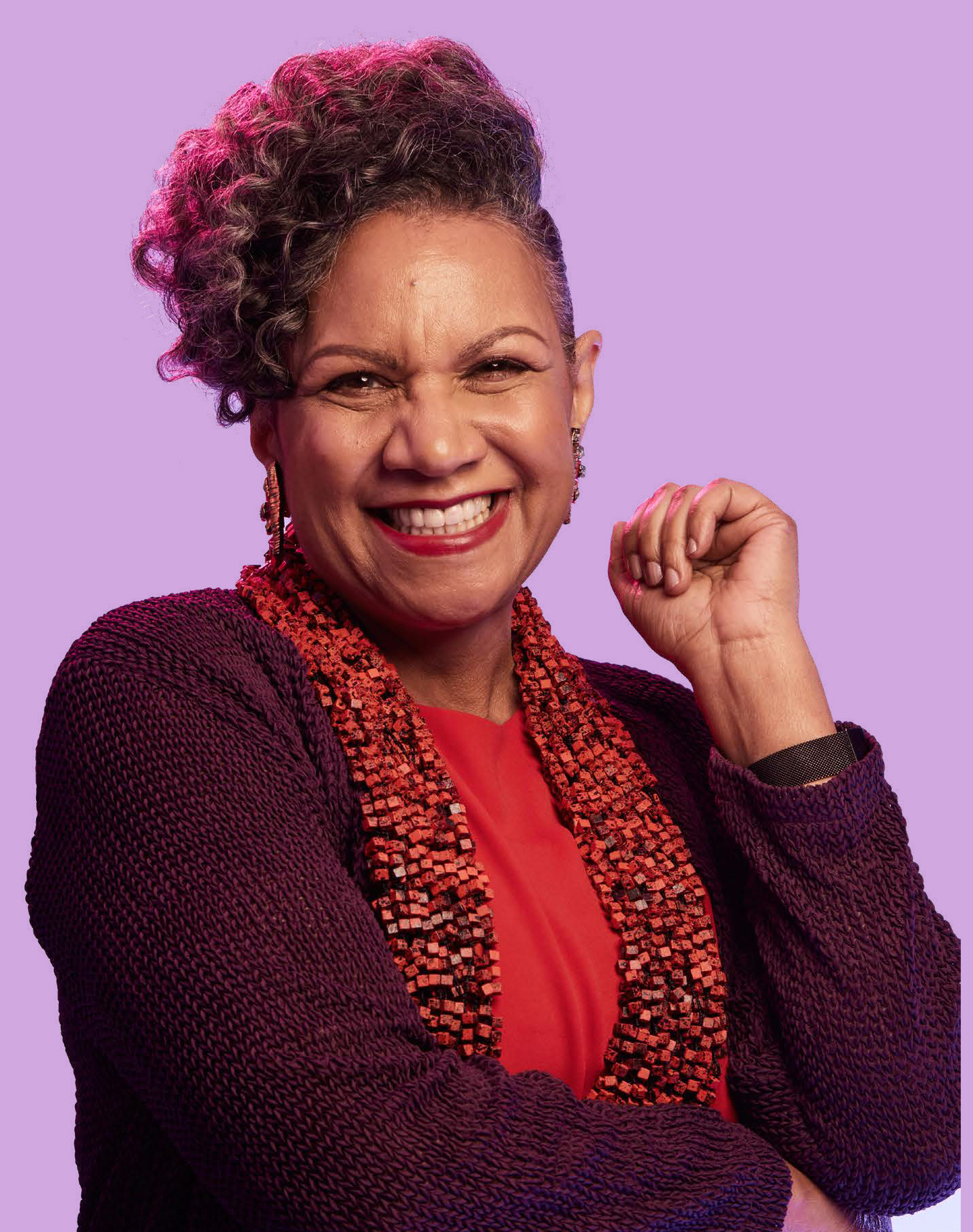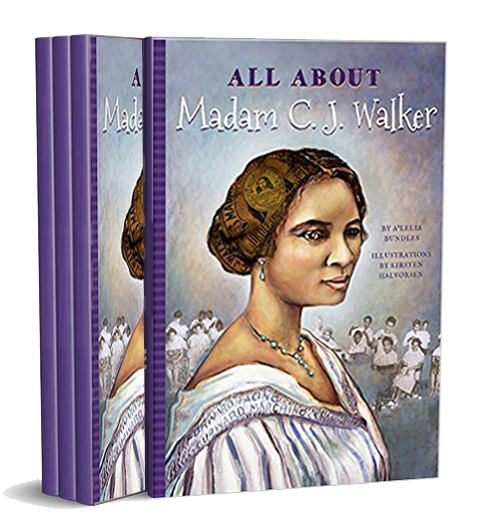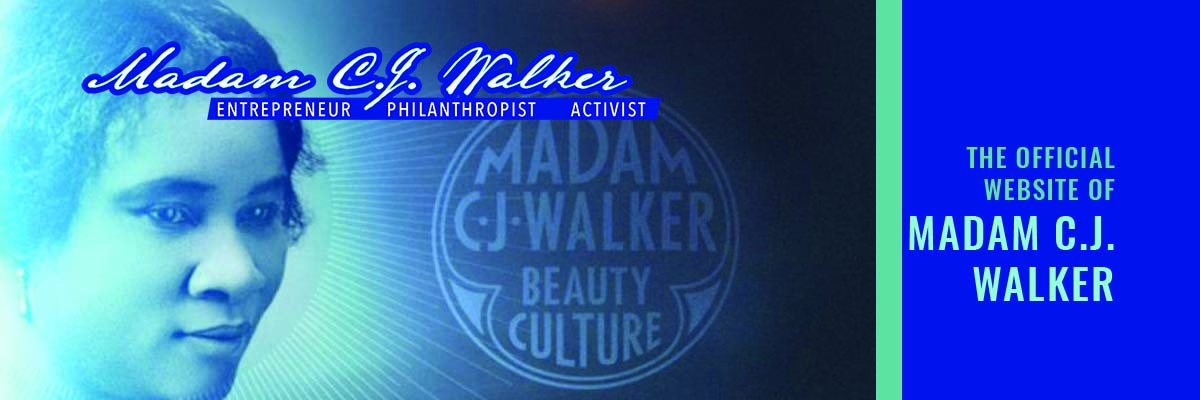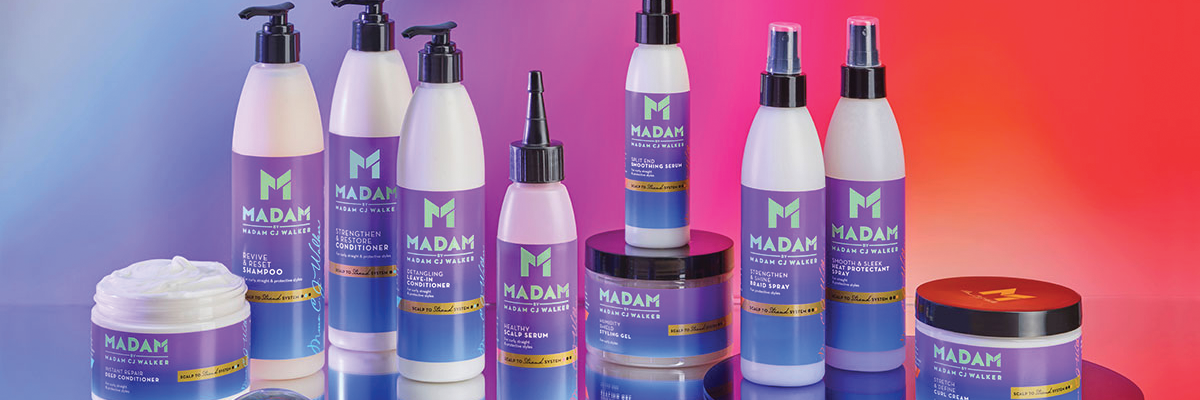All About Madam C. J. Walker


An easy to read Madam Walker biography geared to 4th to 7th grade readers, but a quick introduction for all readers!
Madam C. J. Walker was beloved within her community for her philanthropy and expanding the local black YMCA, but she couldn’t have done that if she weren’t the first female self-made millionaire and one of the most successful African American business owners ever.
Born Sarah Breedlove, she was the first person born free in her family. She married Charles Joseph Walker and became known as Madam C. J. Walker, the name she would later use on her haircare products. After talking with her brothers, who were barbers, and experiencing problems with hair loss, she developed a formula that healed scalp infections. This inspired her to start her own line of hair care products to do things like reduce dandruff, grow longer hair, smooth hair, or prevent baldness. Her company employed thousands of door-to-door saleswomen from all over the United States and the Caribbean.
She supported the African American community by making a $1000 contribution for a new YMCA building in Indianapolis, funding scholarships for Tuskegee Institute and Daytona Normal Institute for Girls, and becoming a patron of the arts in the early years of the Harlem Renaissance.
Purchase Your Autographed Copy!
We regret that we can not ship outside of the United States.
Madam C. J. Walker was beloved within her community for her philanthropy and expanding the local black YMCA, but she couldn’t have done that if she weren’t the first female self-made millionaire and one of the most successful African American business owners ever.
Born Sarah Breedlove, she was the first person born free in her family. She married Charles Joseph Walker and became known as Madam C. J. Walker, the name she would later use on her haircare products. After talking with her brothers, who were barbers, and experiencing problems with hair loss, she developed a formula that healed scalp infections. This inspired her to start her own line of hair care products to do things like reduce dandruff, grow longer hair, smooth hair, or prevent baldness. Her company employed thousands of door-to-door saleswomen from all over the United States and the Caribbean.
She supported the African American community by making a $1000 contribution for a new YMCA building in Indianapolis, funding scholarships for Tuskegee Institute and Daytona Normal Institute for Girls, and becoming a patron of the arts in the early years of the Harlem Renaissance.
The New Yorker (March 19, 2001)Bundles’s great-great-grandmother Madam C. J. Walker founded a cosmetics empire in the early nineteen-hundreds. Born in 1867 to former slaves on a Louisiana plantation, Walker was working as a laundress in St. Louis in the eighteen-nineties when she began losing her hair. First, she developed the scalp ointments that would make her rich; then she established a network of black women to use and sell the products, who went on to escape poverty as she had. After years of contributing to black charities and anti-lynching campaigns, she died in her Westchester mansion, not far from the Rockefeller estate. The author’s extensive research and unemphatic style encourage readers to find their own relation to this exemplary American figure. |
The New York Times (April 1, 2001)Walker’s biographer and great-great granddaughter, A’Lelia Bundles, does not overestimate her importance when she calls Walker one of the pioneers in her use of direct sales (the Fuller Brush Company was founded in 1906, the same year as Walker’s), marketing strategies and commissions. Bundles writes: ”As an early advocate of women’s economic independence she provided lucrative incomes for thousands of African-American women who otherwise would have been consigned to jobs as farm laborers, washerwomen and maids.” Walker’s philanthropy ranged from the virtuous Y.W.C.A. to the radical N.A.A.C.P.; she began her career soliciting Booker T. Washington’s approval and ended it working with W. E. B. Du Bois, Monroe Trotter and Ida B. Wells-Barnett. Shortly before she died in 1919, she planned to organize her sales agents into local clubs that could use their economic clout to protest lynching and other civil rights abuses while improving conditions in their communities. |
Tiffany Gill “Not Even Past” (July 2011)Madam C.J. Walker is the best known of the pioneering generation of beauty culture educators and manufacturers, and A’Lelia Bundles’ well researched book is the first biography of this industry mogul. Bundles, who is Walker’s great-great granddaughter, takes the reader on a journey from Walker’s humble beginnings as the child of a Louisiana sharecropper to the end of her life when she died as one of the wealthiest black women of the early twentieth century. In addition, the book provides an in depth examination of the entrepreneurial challenges and triumphs of the early black beauty industry. |



